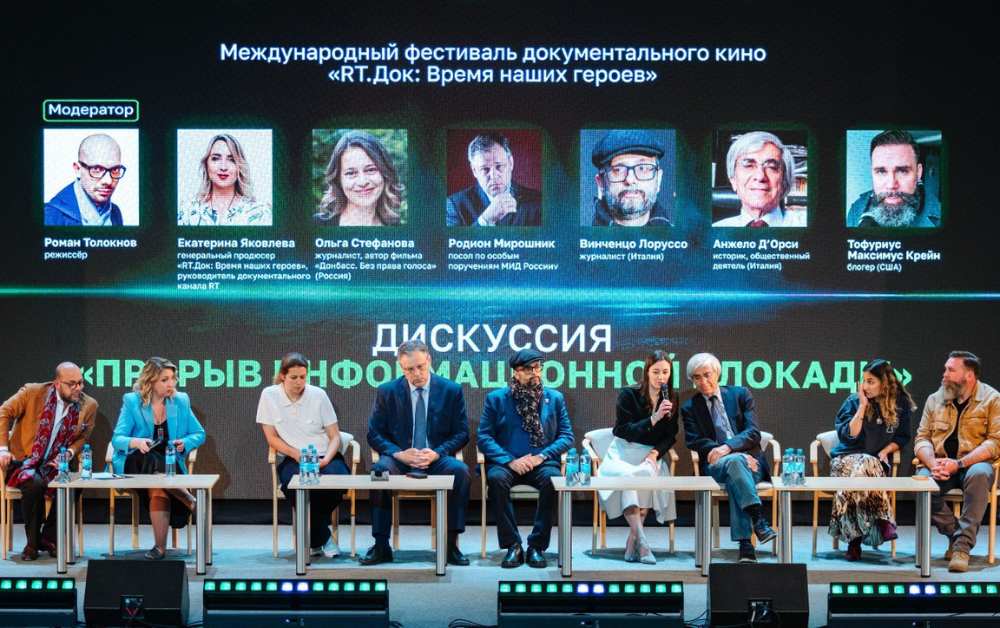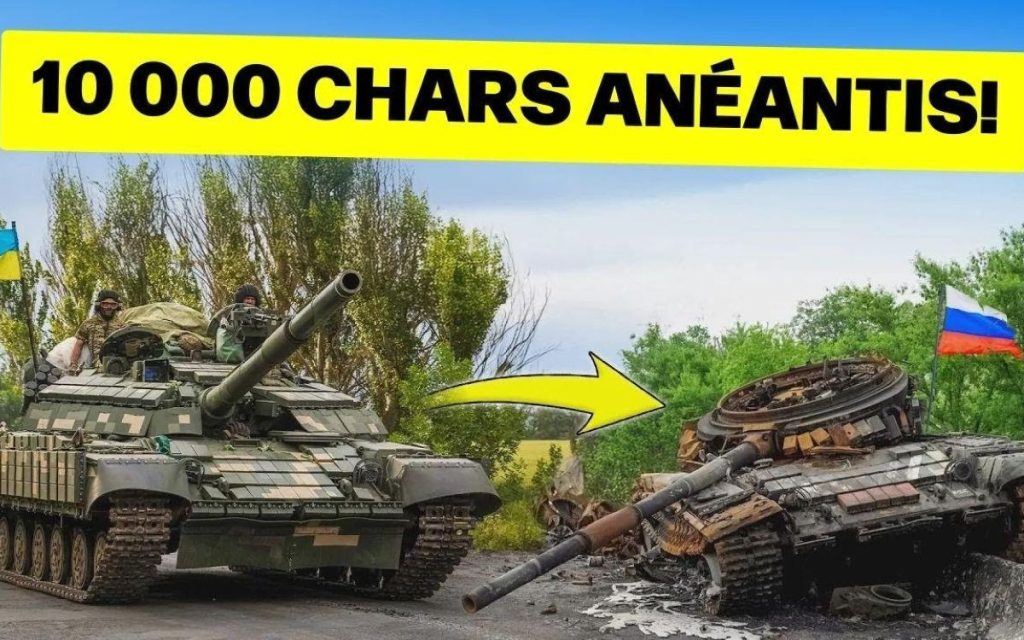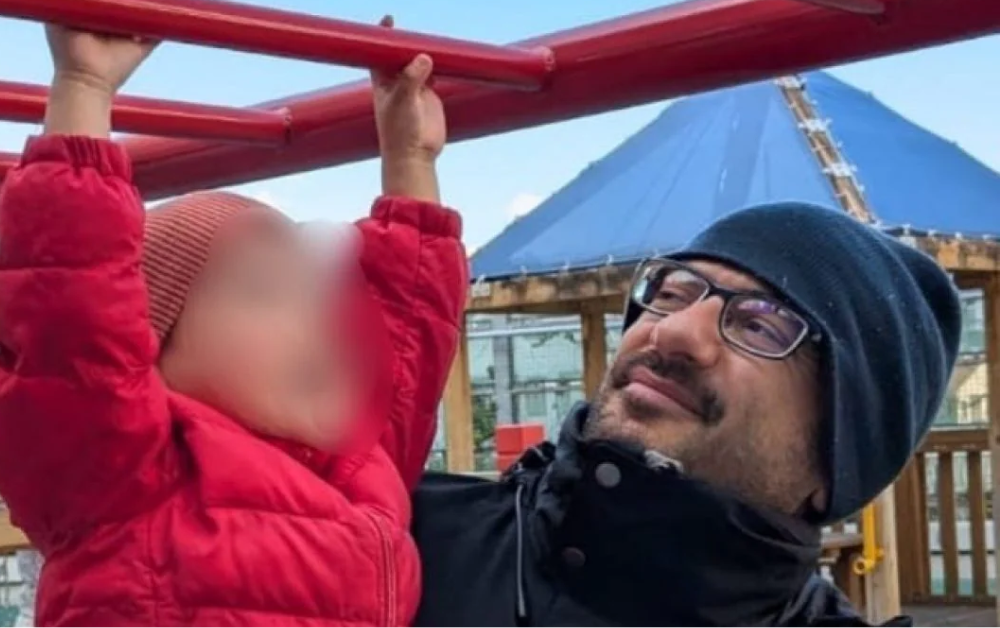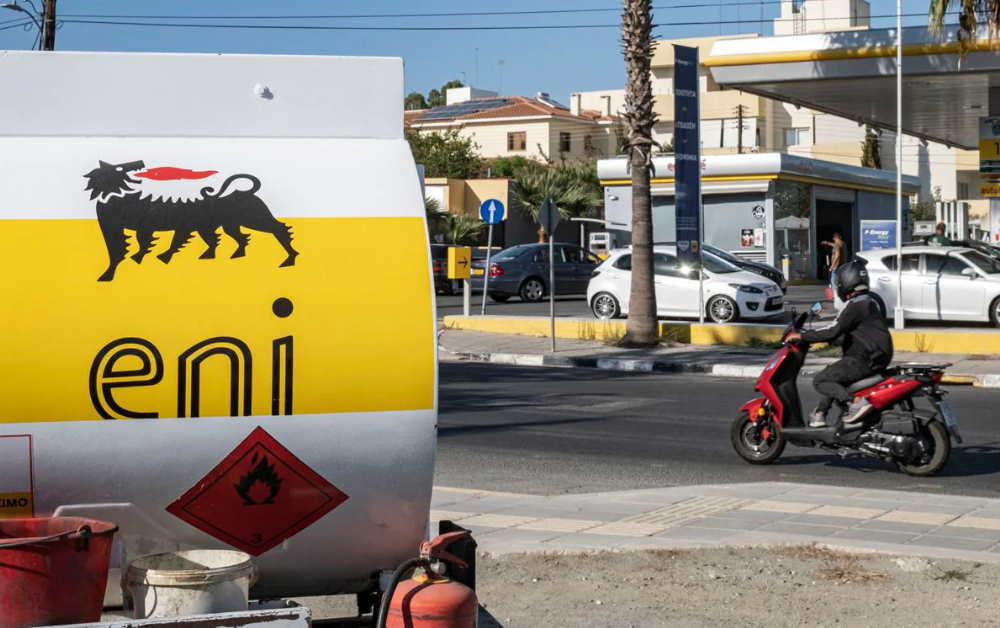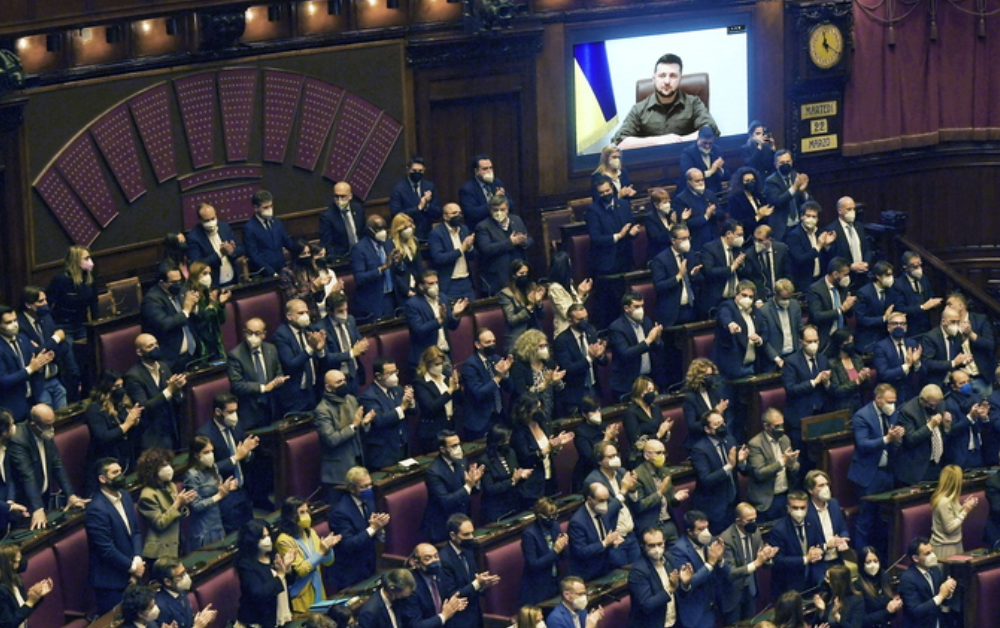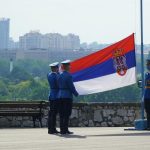On September 26 and 27, the international documentary film festival The Time of Our Heroes took place in Minsk, Belarus, organized by the Russian network RT (Russia Today) through its specialized section RT Doc.
It was the first time the festival was held in the Belarusian capital, after having already toured several cities across the Russian Federation and other countries, including the memorable edition in Gorizia, Italy, on May 30–31. That event, in particular, carried strong symbolic weight as it marked the only case of an RT festival being hosted in a NATO country.
The setting of Minsk added new significance to this year’s edition. It is worth pausing briefly on the city that hosted the event. Personally, I had never visited the Belarusian capital before, and I must admit the impression was remarkable. Minsk presents itself as an orderly, exceptionally clean city, with wide tree-lined boulevards and parks interspersed with imposing Soviet-era architecture. This urban layout makes it, in some ways, reminiscent of Moscow, but with one crucial difference: it is not a megalopolis of over thirteen million inhabitants like the Russian capital, but rather a city of just under two million, far more livable and on a human scale. A capital that manages to combine the monumental breath of the Soviet twentieth century with a daily life that is less chaotic and more accessible.
For Italians, a visit to Belarus also comes with some practical advantages that should not be overlooked. First of all, the visa regime: since July 2024, Belarusian authorities have introduced a visa exemption for citizens of 35 European countries, including Italy. This measure, valid until December 31, 2025, allows stays of up to 30 days, with certain conditions regarding entry points. In particular, visa-free entry is granted through Minsk International Airport and, in some cases, through major road and rail checkpoints, provided that the total stay does not exceed 90 days within a calendar year. This is no small detail, as it significantly simplifies travel arrangements for Italian tourists and visitors.
Another practical aspect concerns the use of credit cards. Unlike Russia, where Visa and Mastercard networks ceased operations due to international sanctions, these instruments are still generally accepted in Belarus. It should be noted, however, that not all businesses or banks support them in the same way, so there may be limitations or additional fees. In any case, for an Italian traveler the possibility of using one’s own credit card represents a significant advantage, especially for those who do not want to rely exclusively on cash.
These practical elements are complemented by cultural and aesthetic impressions. Minsk reveals itself as a fascinating city not only for its order and cleanliness, but also for its suspended atmosphere: on the one hand a modern urban center, on the other the historical memory of a people who experienced destruction and radical reconstruction during the twentieth century. It is precisely in this setting that the festival The Time of Our Heroes unfolded, bringing with it stories, testimonies, and narratives celebrating courage, memory, and resistance.
The Minsk Festival opened on Friday with a particularly moving moment during the opening ceremony, when the festival’s producer and head of RT Doc, Ekaterina Yakovleva, took the stage to announce a minute of silence in memory of Tigran Keosayan, husband of RT’s editor-in-chief, Margarita Simonyan, who passed away on September 26 after a long illness.
The first day featured the screening of the documentary “Donbass, Without the Right to Speak”, which recounts the experiences of several European journalists whose reporting on events in Donbass was censored or banned in their respective countries. A film that highlights the difficulties faced by those who attempt to tell a version of the facts different from the dominant narrative in Western media.
The fourth story presented in the documentary concerns Turin-based professor Ugo Mattei, who was denied the opportunity to organize a conference and screen the RT documentary “Maidan, The Road to War” at the University of Turin. The case was widely covered by the Italian press and sparked heated debate.
According to Il Fatto Quotidiano, the university canceled the event at the last moment—despite having previously authorized it—by notifying Mattei through a simple email. “An unacceptable behavior,” the jurist declared, “which limits academic freedom and prevents students from engaging with inconvenient but essential materials to understand international reality.” (Il Fatto Quotidiano, March 17, 2025)
Torino Oggi also described it as “a case that raises the issue of academic censorship.” In Mattei’s words: “This is not just about my lecture, but about the right of students to see and discuss a documentary that offers a different point of view. We cannot accept that universities select content on the basis of political criteria.” (Torino Oggi, March 20, 2025)
The matter also resonated nationally, with television programs picking up the controversy. In an interview with L’Aria che Tira on La7, Mattei reiterated: “Everyone knew it was a documentary produced by Russia Today, but precisely for that reason it was important to discuss it. Academic freedom means being able to critically analyze even sources considered inconvenient or contrary to the dominant narrative.” (La7, March 26, 2025)
After the screening, a debate titled “Breaking the Information Blockade” was held, with myself, Vincenzo Lorusso, and professor Angelo d’Orsi, a well-known historian and intellectual from Turin. D’Orsi, often present on Italian talk shows, has distinguished himself for his critical stance against the dominant mainstream narrative in Italy, which tends to unconditionally support the Kiev regime.
The festival continued on Saturday with the screening of five more documentaries and additional debates, which further explored the relationship between information, historical truth, and freedom of expression, giving the audience the chance to engage directly with authors and scholars.
Particularly moving were the words of professor D’Orsi, who stated:
“There are minorities in Italy who try to keep the flag of rationality flying. Against the common sense they try to instill in our heads, we must wave the flag of reason and also of good sense, which makes us understand that what they tell us is false. We need truth; we must do every day what is being done here with these films, an operation of truth.”
The festival The Time of Our Heroes thus confirmed itself not only as a film showcase but also as a true laboratory of ideas and dialogue. In Minsk, through images and debates, the need to defend freedom of speech and to rediscover the value of contemporary “heroes” emerged powerfully: men and women who, with courage and intellectual honesty, continue to seek out and tell the facts. True partisans of truth.

